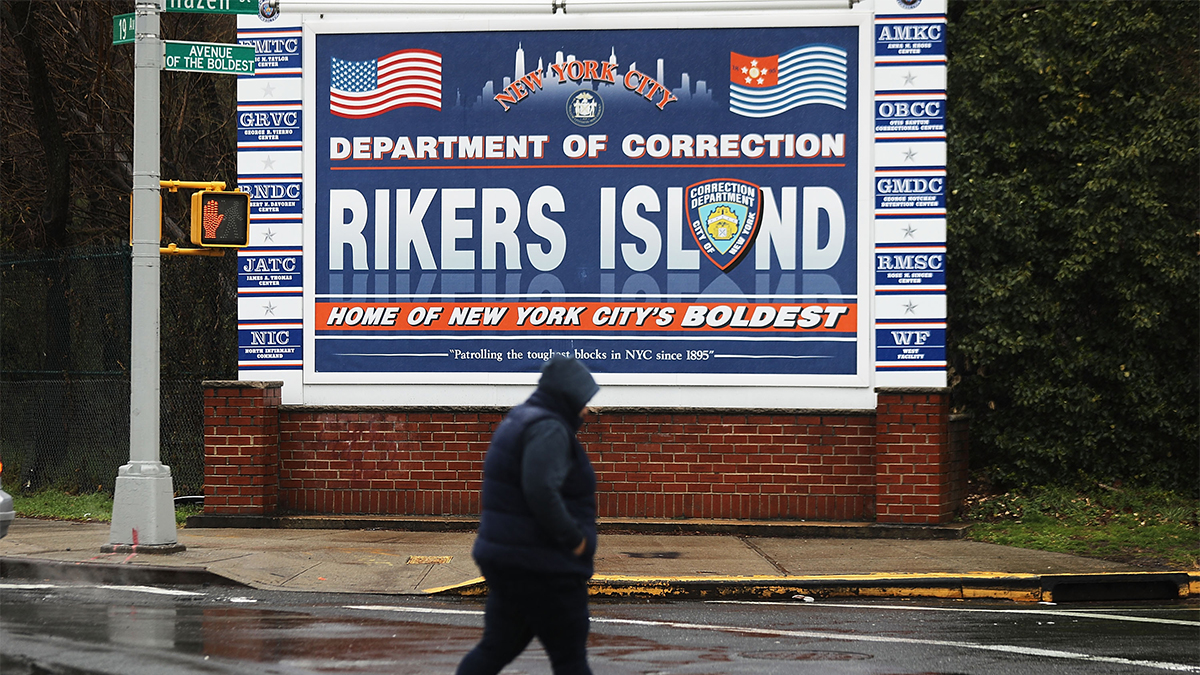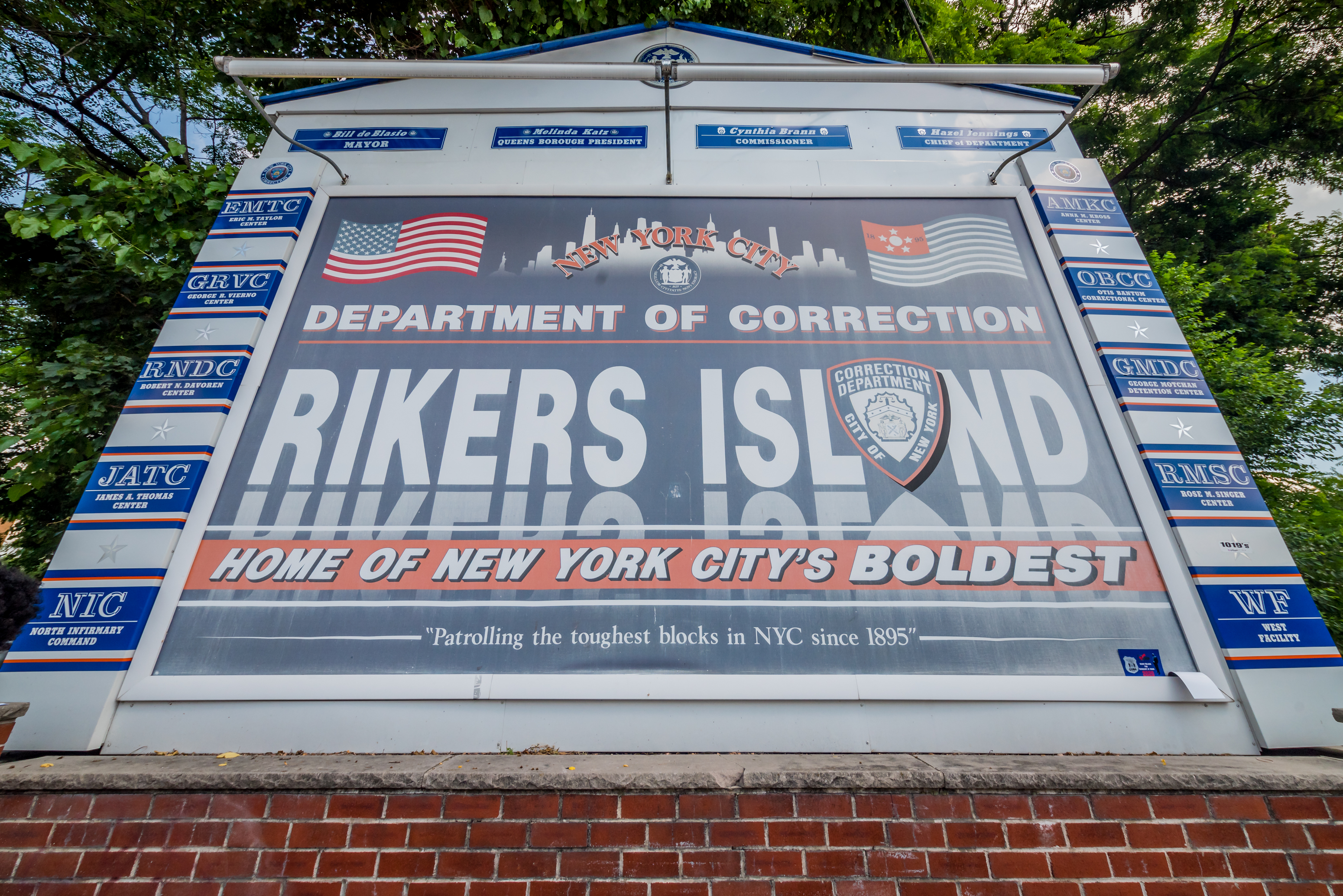What to Know
- New York Gov. Kathy Hochul signed a bill into law Friday aimed to transform the state's parole system amid rising concerns about the safety of inmates and correction officers in the walls of New York City's Rikers Island.
- The Less is More Act modifies the standard of evidence and certain other procedures when determining whether to revoke the community supervision of a person on parole.
- Hochul also announced an agreement with the Department of Corrections and city to allow for incarcerated individuals who have been sentenced to at least ninety days to be transferred from Rikers Island to New York State facilities.
New York Gov. Kathy Hochul signed a bill into law Friday aimed to transform the state's parole system amid rising concerns about the safety of inmates and correction officers in the walls of New York City's Rikers Island.
The Less is More Act modifies the standard of evidence and certain other procedures when determining whether to revoke the community supervision of a person on parole. It aims to ensure the Department of Corrections and Community Supervision focuses its resources on helping individuals successfully complete community supervision and avoid future return to DOCCS custody or supervision.
"Our fellow New Yorkers on parole deserve to reenter society with our support and respect - reincarcerating parolees for technical violations traps them and doesn't help our communities," Hochul said. "New Yorkers currently serving sentences in jails and prisons also deserve our support - there is no justice in mistreating incarcerated New Yorkers."
Get Tri-state area news delivered to your inbox.> Sign up for NBC New York's News Headlines newsletter.
Hochul also announced an agreement with the Department of Corrections and city to allow for incarcerated individuals who have been sentenced to at least ninety days to be transferred from Rikers Island to New York State facilities. Overall, 40 inmates per day will be transferred out of Rikers over the next five days for an additional reduction of 200.
Supporters of the so-called Less is More Act, introduced by then State Senator and now Lt. Gov. Brian Benjamin, say the legislation addresses the state's draconian and costly parole system that unnecessarily keep people incarcerated. The bill passed by the State Assembly and the Senate back in June would end automatic detention over mere accusation of a parole violation, end incarceration for some technical violations such as missing curfew or drug use, and impose a limit on the length of incarceration for other serious violations.
Mayor Bill de Blasio said he supported the governor signing the bill immediately, suggesting it would help alleviate the ongoing staffing shortages at Rikers, where at least 10 inmates have died this year, by getting hundreds of people out.
"There's two parallel realities, there's a lot of folks who are in Rikers who really should be in a State prison system, not in the city jail. And second, there are folks who do not need to be incarcerated, and that's the point of Less Is More if it is a type of technical violation that does not require incarceration," de Blasio told reporters Thursday.
In addition to calling on Hochul to sign Less is More, the mayor announced his plans to address the crisis at Rikers this week. His reforms include requiring absent guards to get a doctor’s note if they’re out for more than a day, speeding inmate intake procedures and fixing infrastructure problems like broken cell doors.
NYC Department of Correction Commissioner Vincent Schiraldi supports the Less is More Act. Schiraldi co-authored a paper for the Columbia Justice Lab in 2018 entitled Less Is More in New York: An Examination of the Impact of State Parole Violations on Prison and Jail Populations which the act is named after.
“Governor Hochul has my utmost thanks for prioritizing the signing of this critical legislation, which marks a huge step forward in ending the era of mass incarceration, and its cousin, ‘mass supervision,’" Schiraldi said in a statement. "Eliminating non-criminal, technical parole violations is the decent, humane thing to do and it will only increase public safety by disrupting the incarceration cycle at a critical point, when people are reintegrating into the community."
However, not everyone supports the measure.
We welcome Governor Hochul’s commitment to addressing the unprecedented crisis in our city’s jails, but we respectfully disagree with how effective this legislation will be. This legislation releases 200 of the over 6,000 inmates in our custody. Most of the inmates in our custody are facing felony charges, many of which are nonbailable," Correction Officers' Benevolent Association (COBA) President Benny Boscio Jr. said in a statement.
"Added to that, as crime continues to soar on our streets, it’s inevitable that the individuals who commit those crimes will eventually enter our custody. Just last year alone, there was a 23% increase in our population of inmates facing serious felony charges," Boscio went on to say. "Less criminals in our custody only means more crimes will be committed in our streets, creating more victims and that is an injustice.”
The city’s notorious Rikers Island jail complex, troubled by years of neglect, has spiraled into turmoil during the coronavirus pandemic. The list of issues at the facility is long and jaw-dropping: violence, lack of food and water access, trash piled up, inmates locked in showers because of limited cell space, forcing them to stand in their own waste.
Last week, the city said the staffing situation was so dire it was enlisting a telemarketing company to entice recently retired correctional officers to return to work.
Lawmakers and city leaders say what is happening inside the walls of Rikers Island is a full-blown crisis. Advocates on Wednesday protested outside City Hall, demanding the mayor shut Rikers down immediately and not wait until 2026 as planned.
Lawmakers who toured Rikers complex this week said it's filthy and inhumane, with overflowing toilets and floors covered in dead cockroaches, feces and rotting food. State Assemblywoman Jessica González-Rojas said inmates told her they felt like they were being treated like slaves and animals, and one even tried to kill himself.
On the problem of staffing, some correction officers who called out sick say they're being overworked on 24-hour triple shifts. NBC New York has previously reported on those staff shortages. Officers have lodged complaints for months after being made to work triple shifts without a break, and with no access to food or water.
The union, meanwhile, has said that hiring more guards is the answer and that suspensions will leave remaining officers working “triple and quadruple shifts with no meals and no rest."
The problem has gotten so bad, that whole cell blocks are being left unstaffed at times. On Wednesday alone, 21% of the correction officers called out sick.



